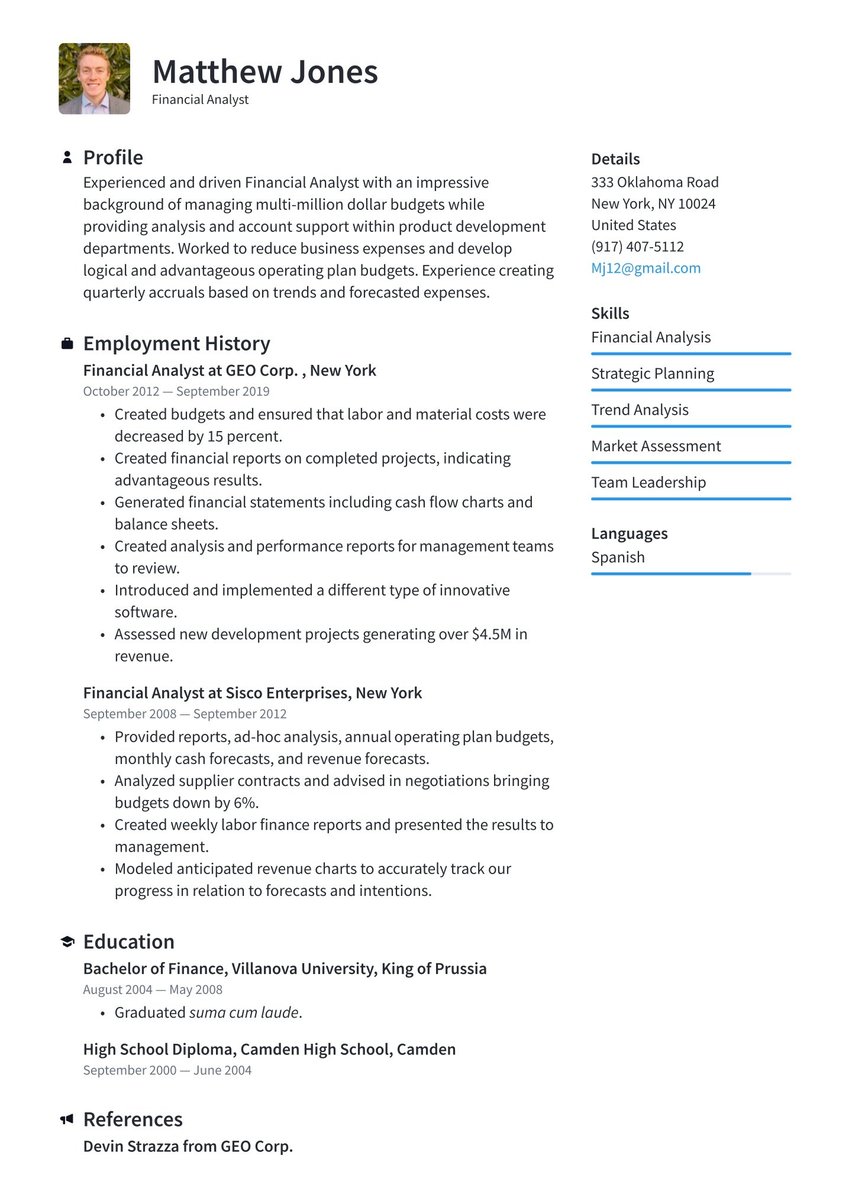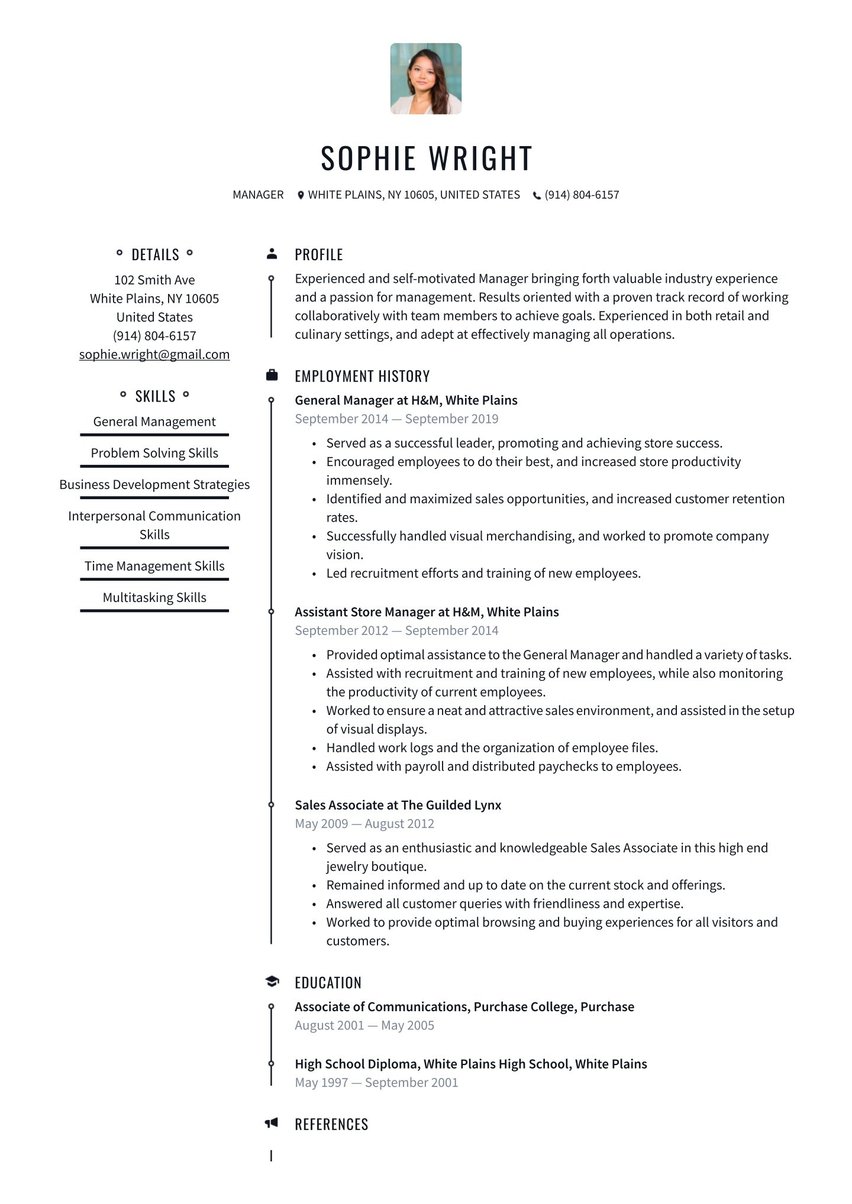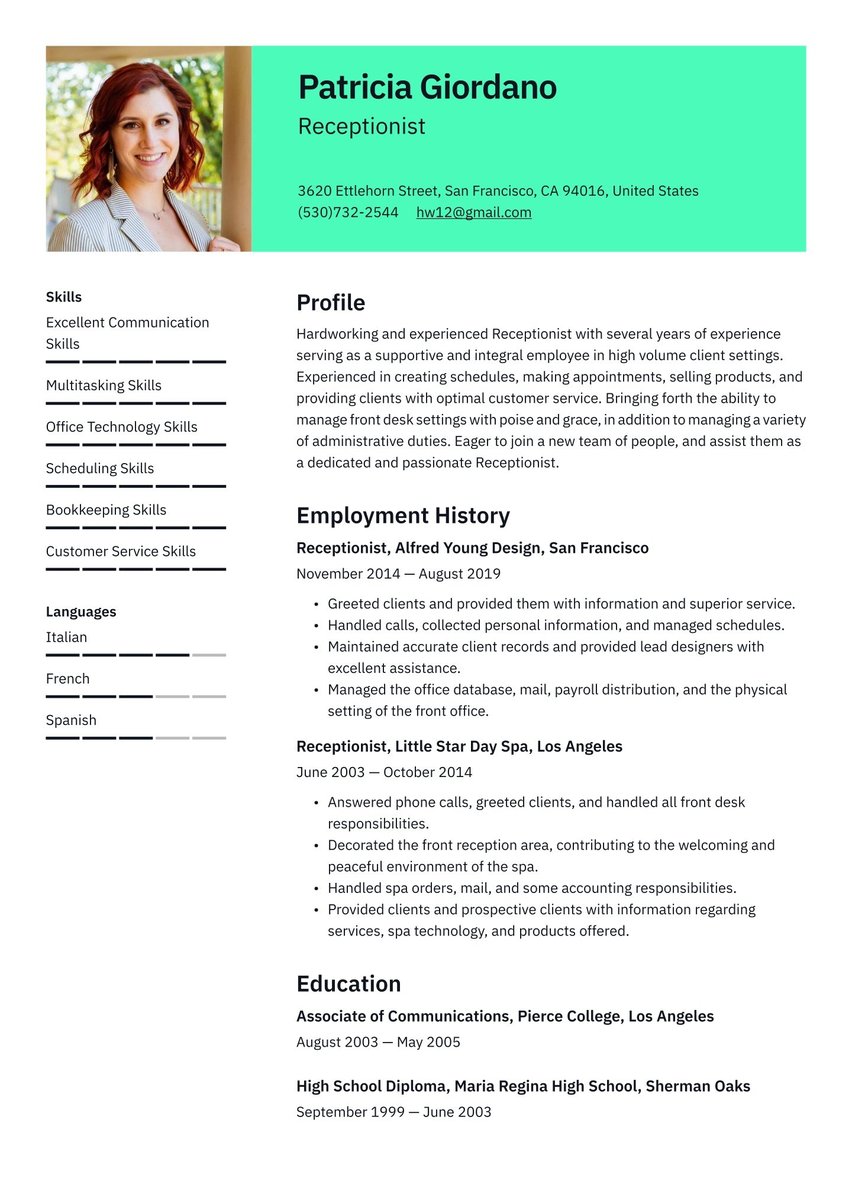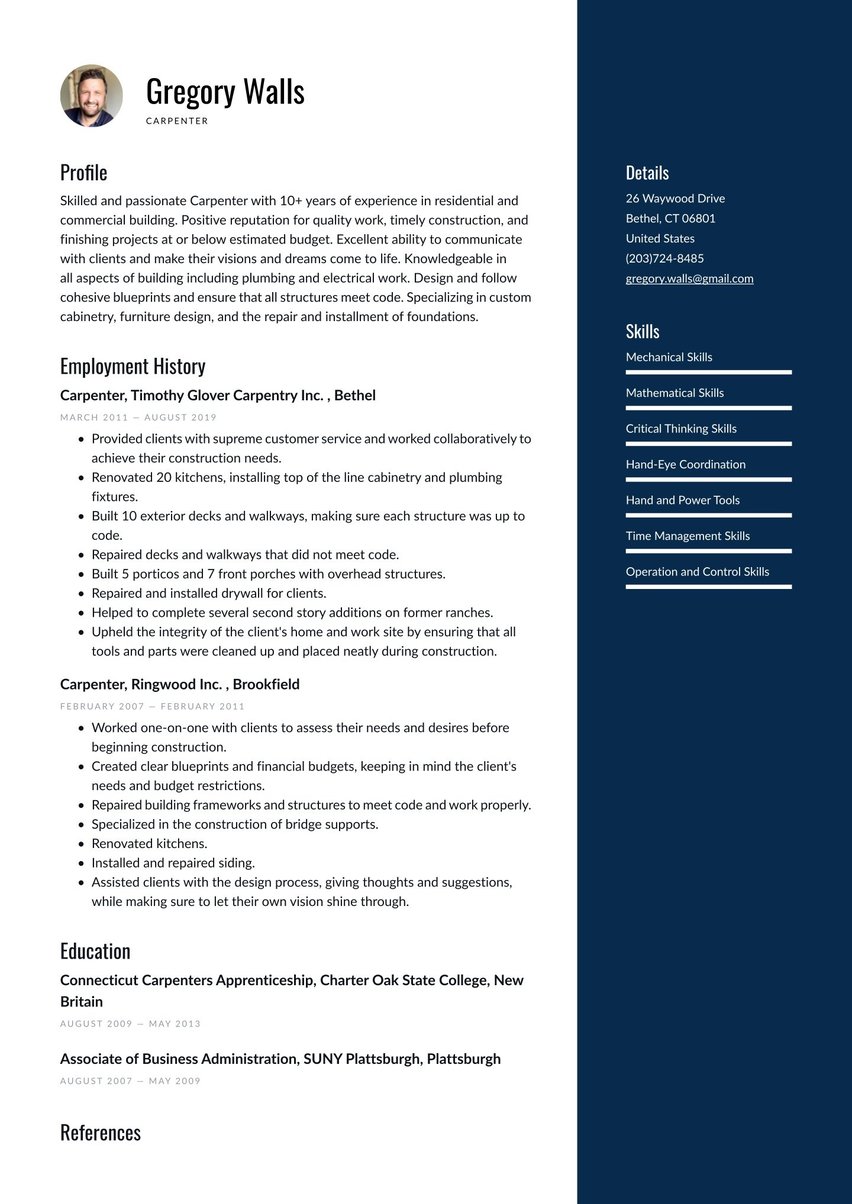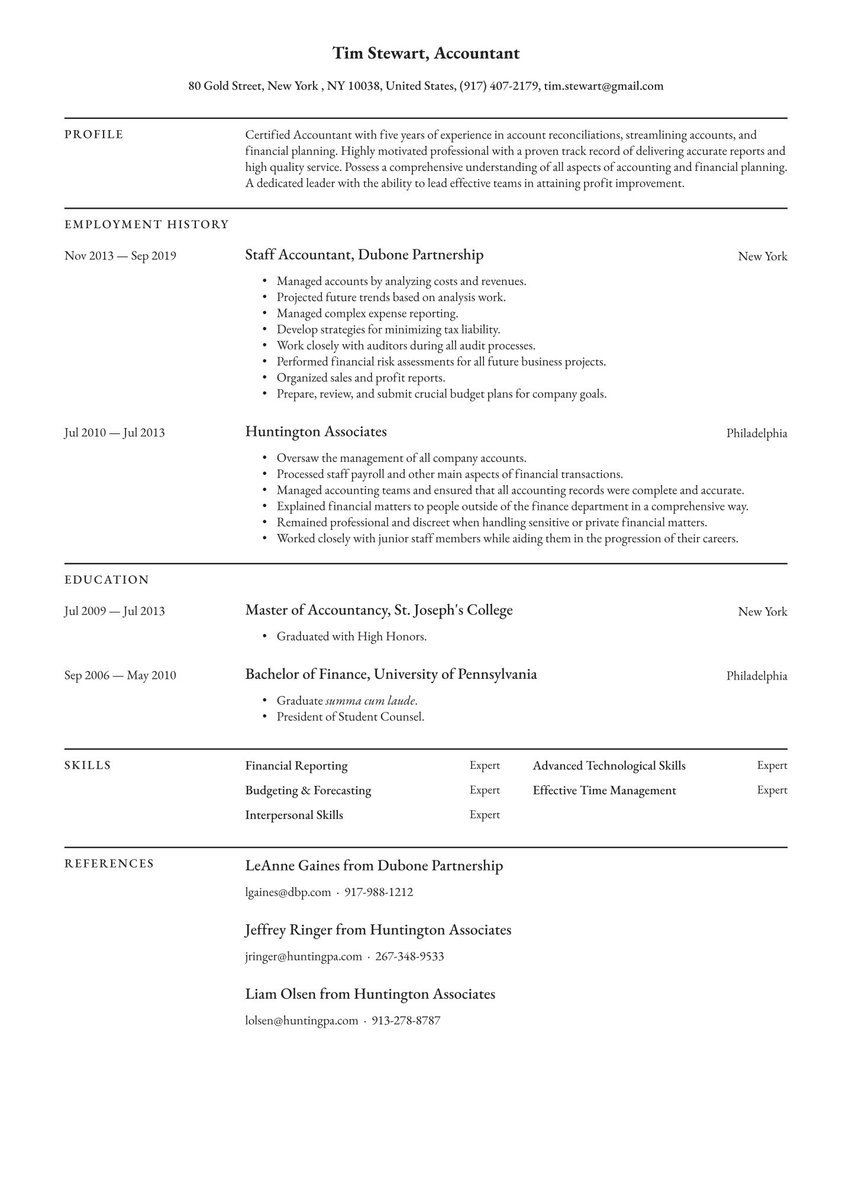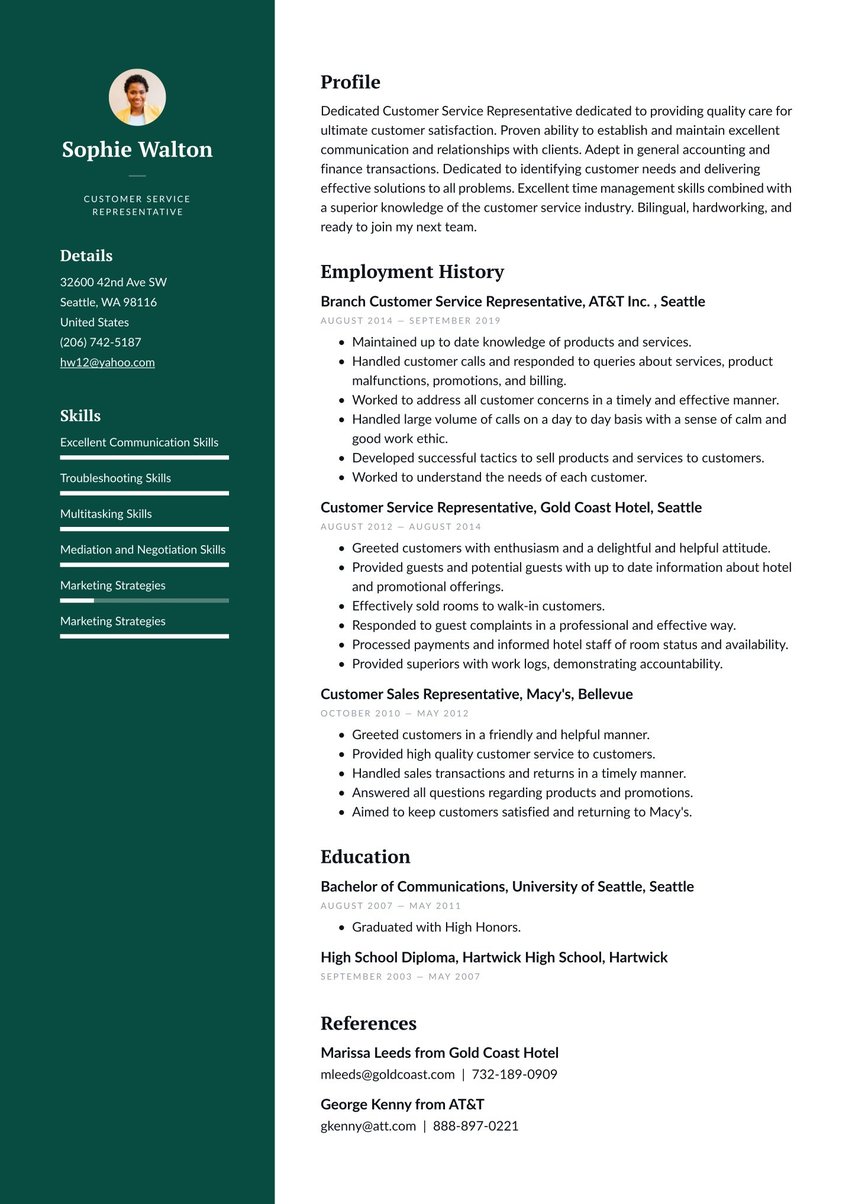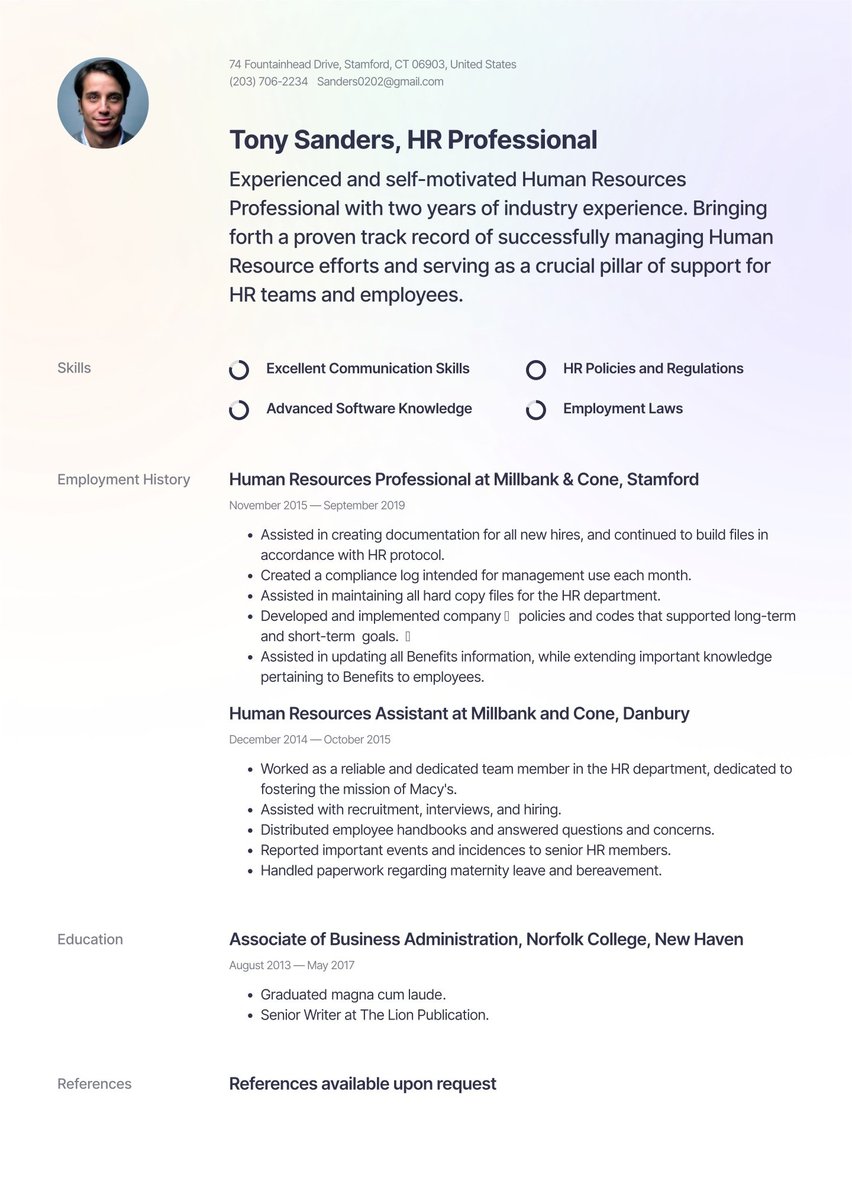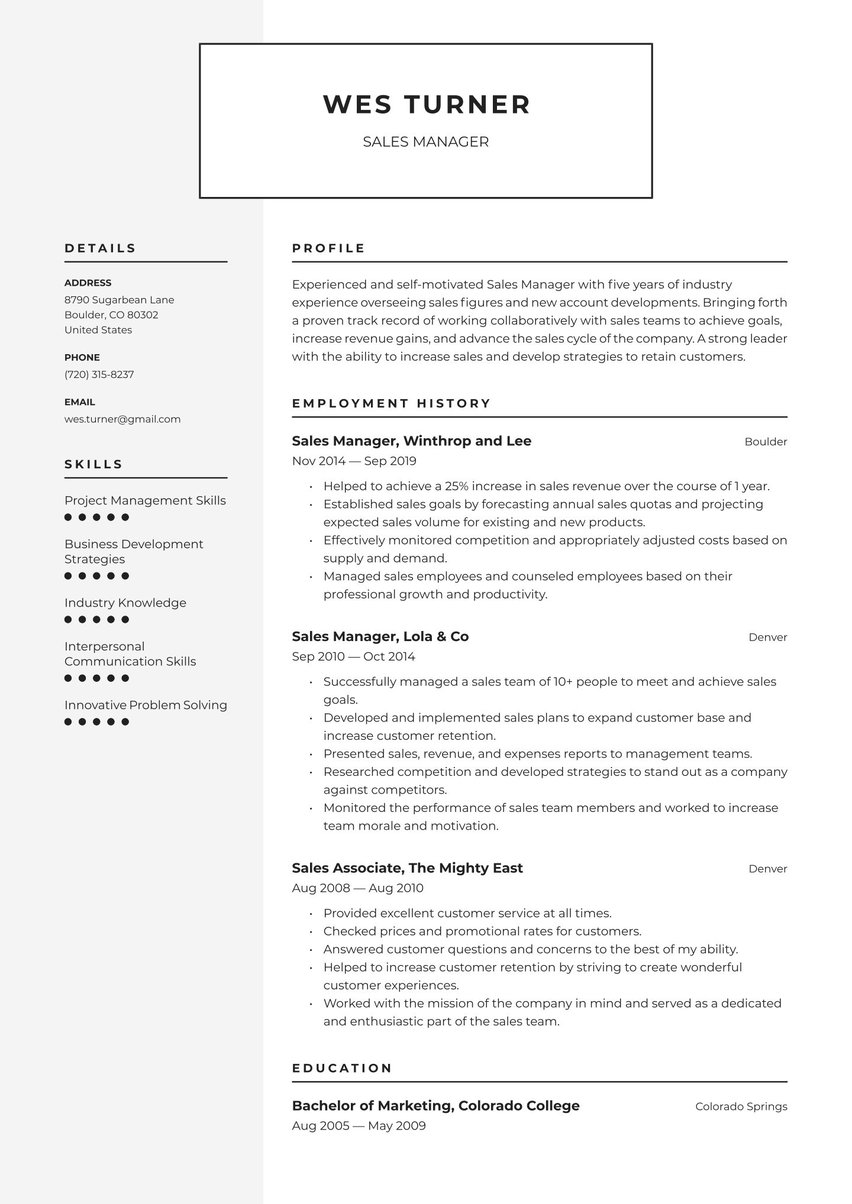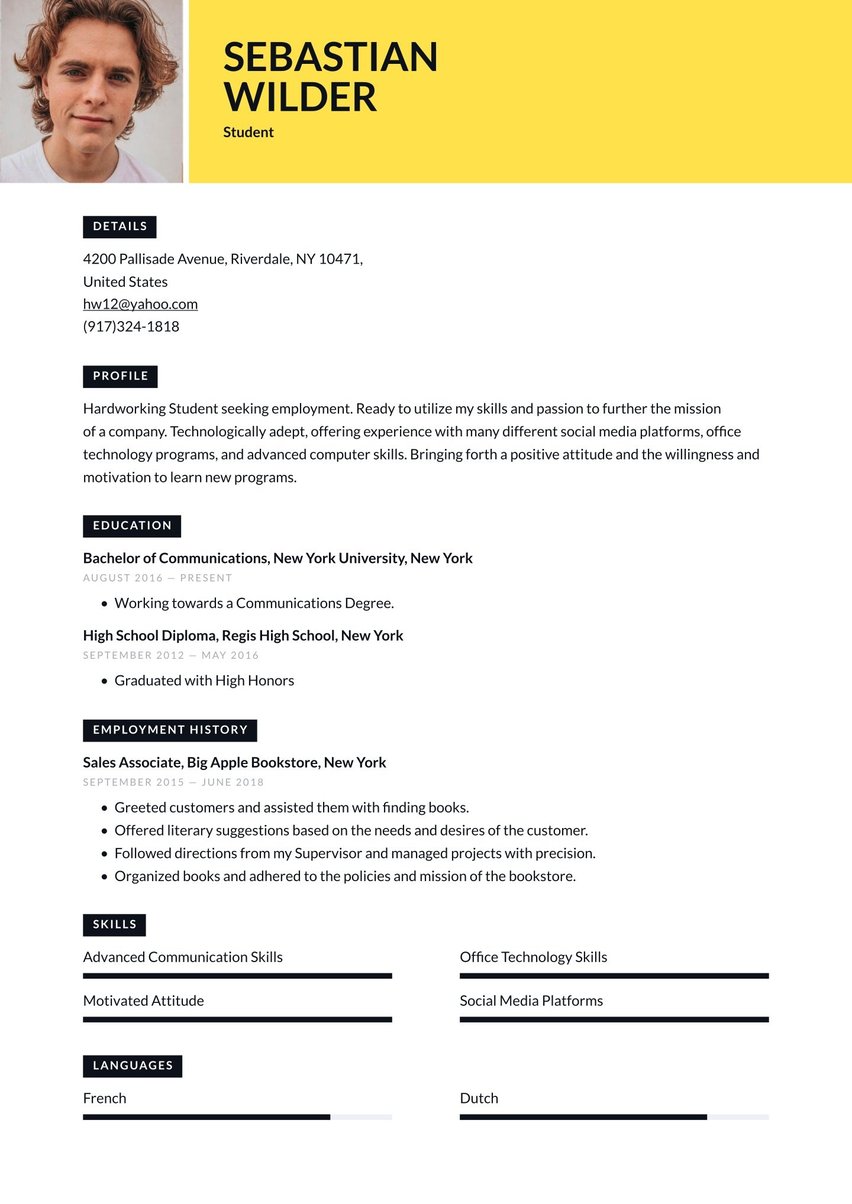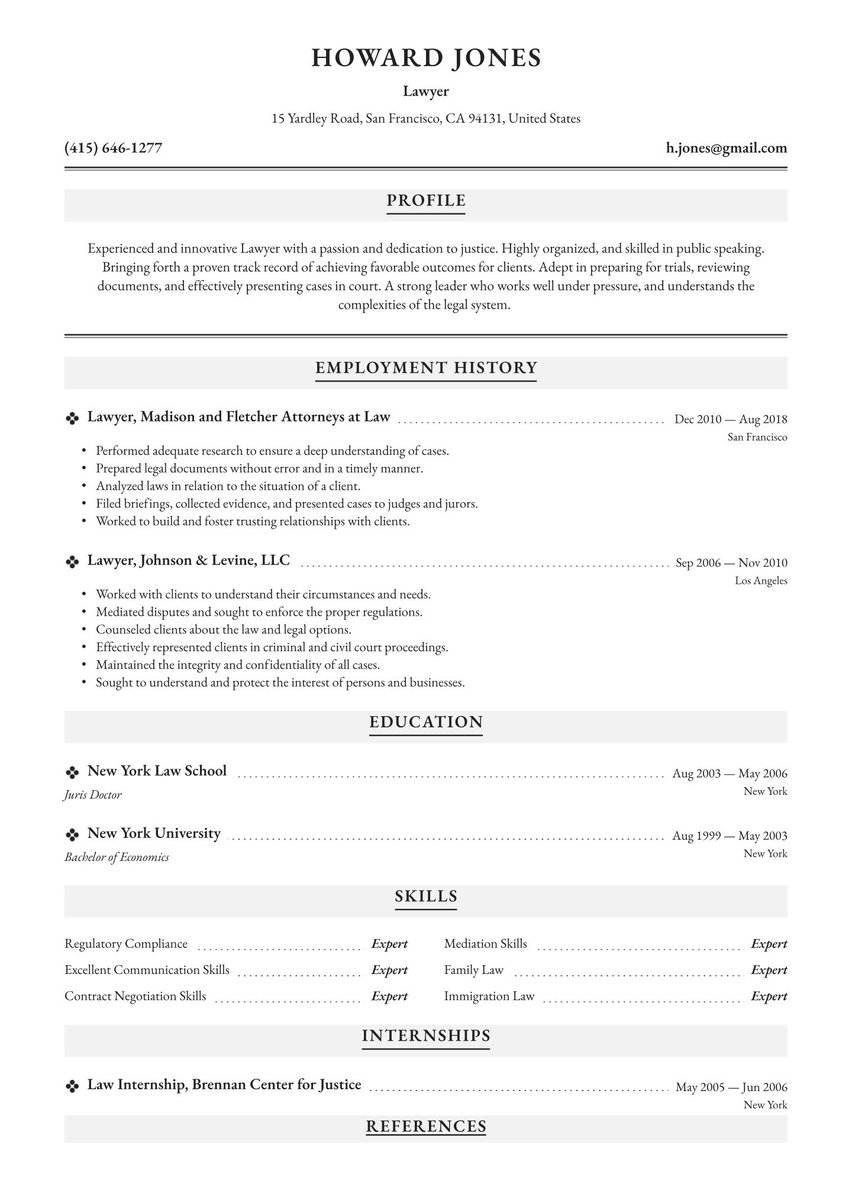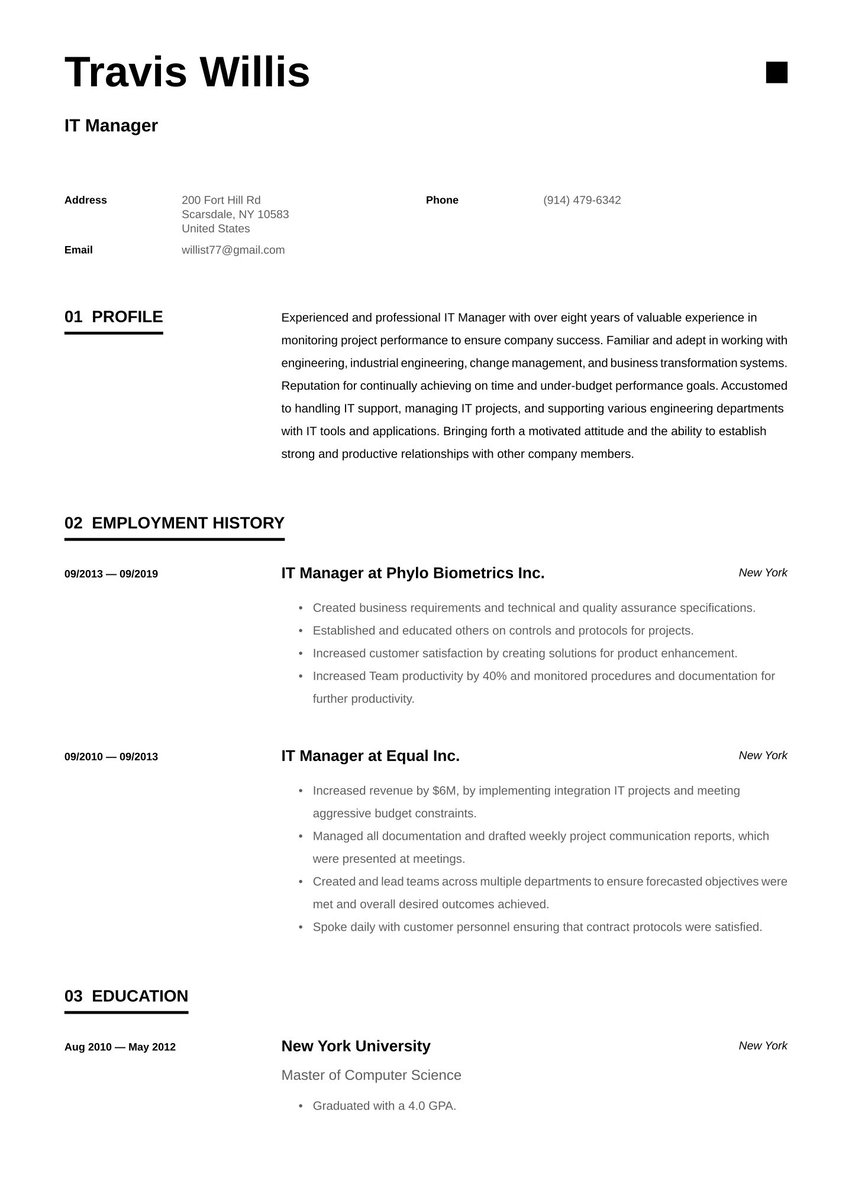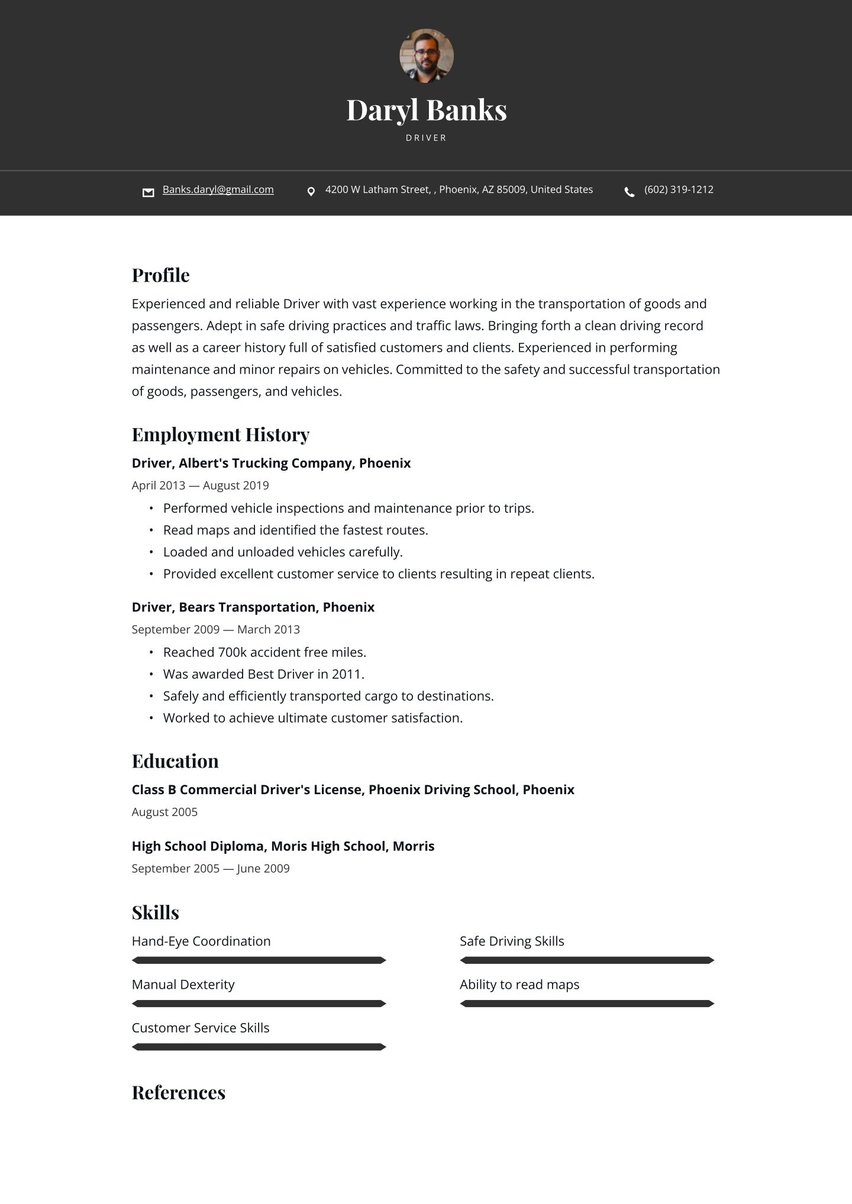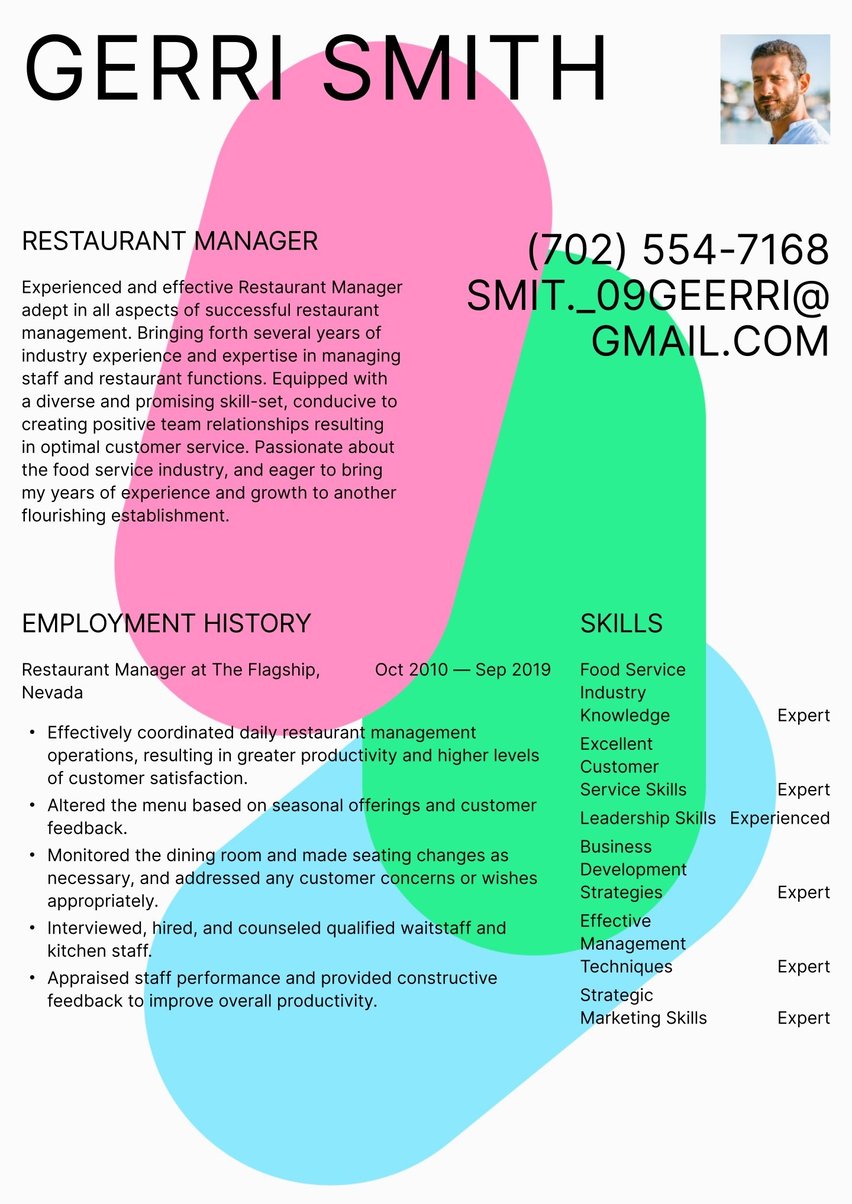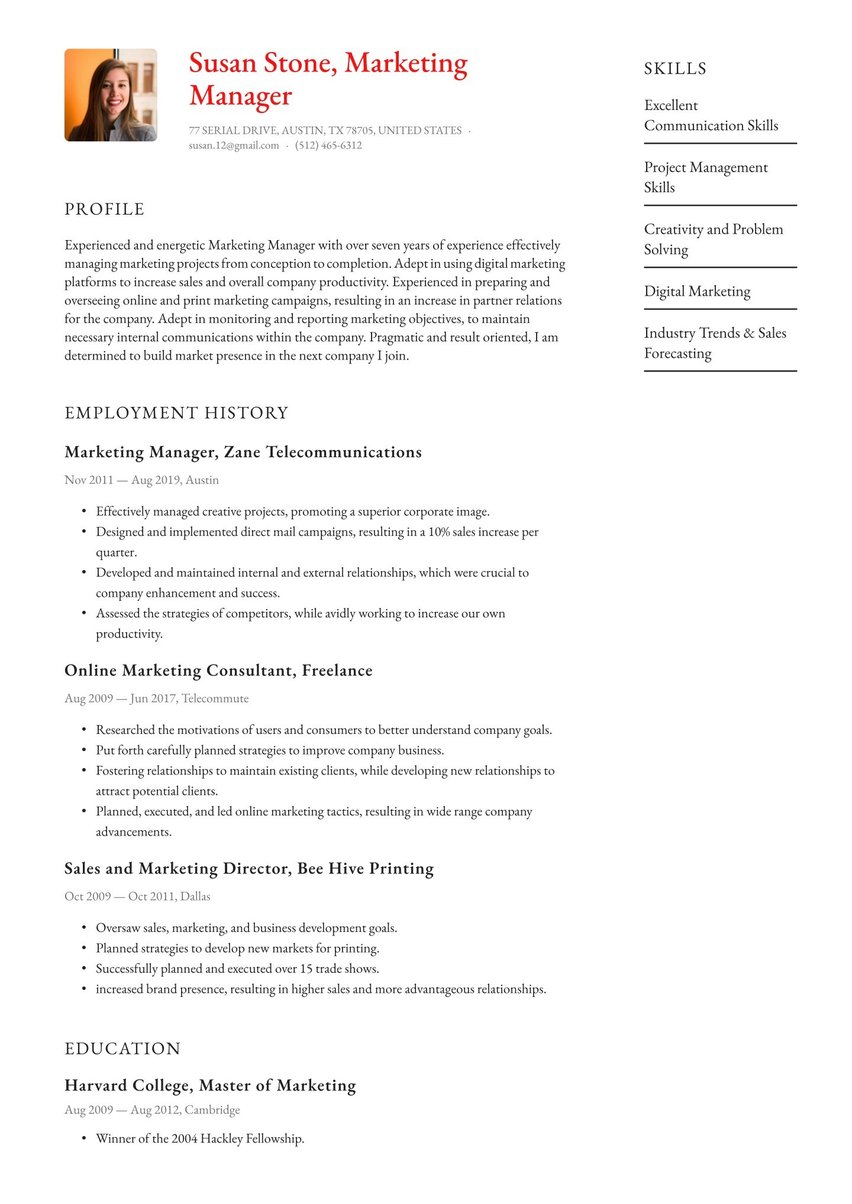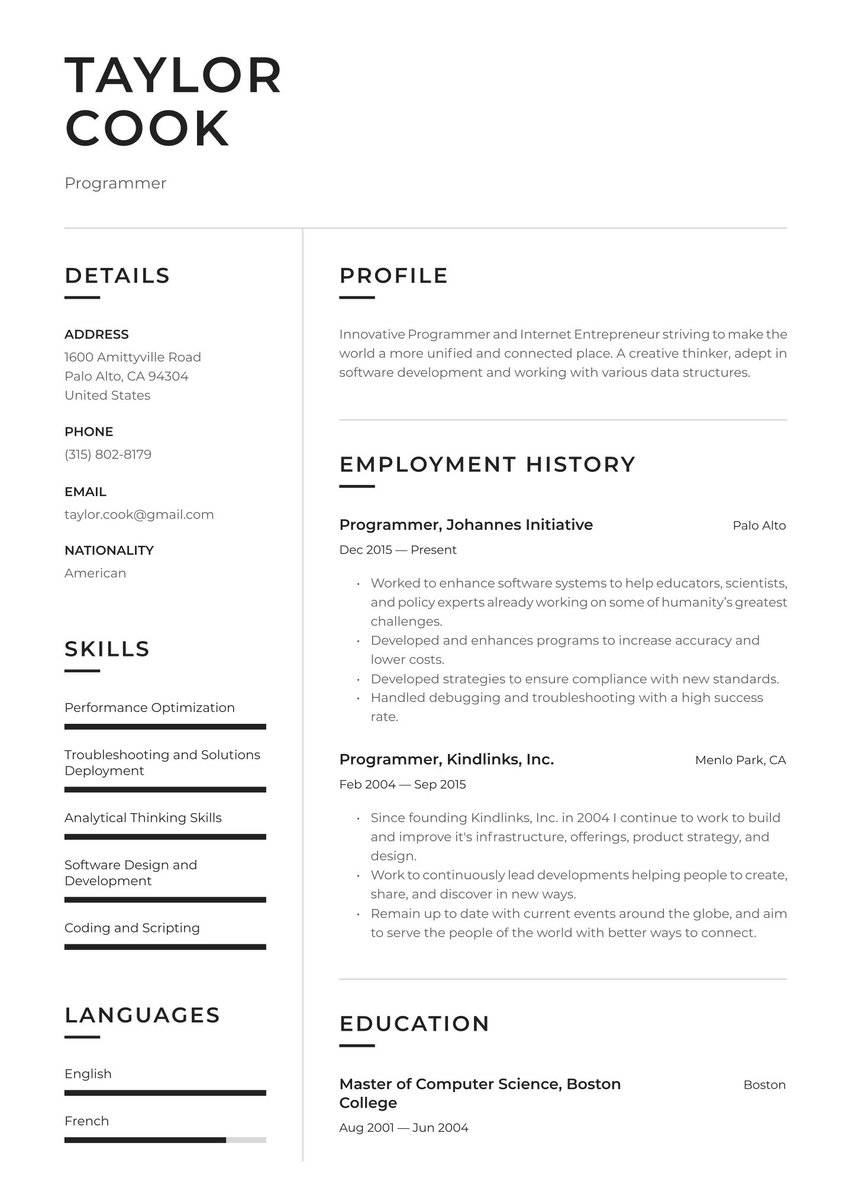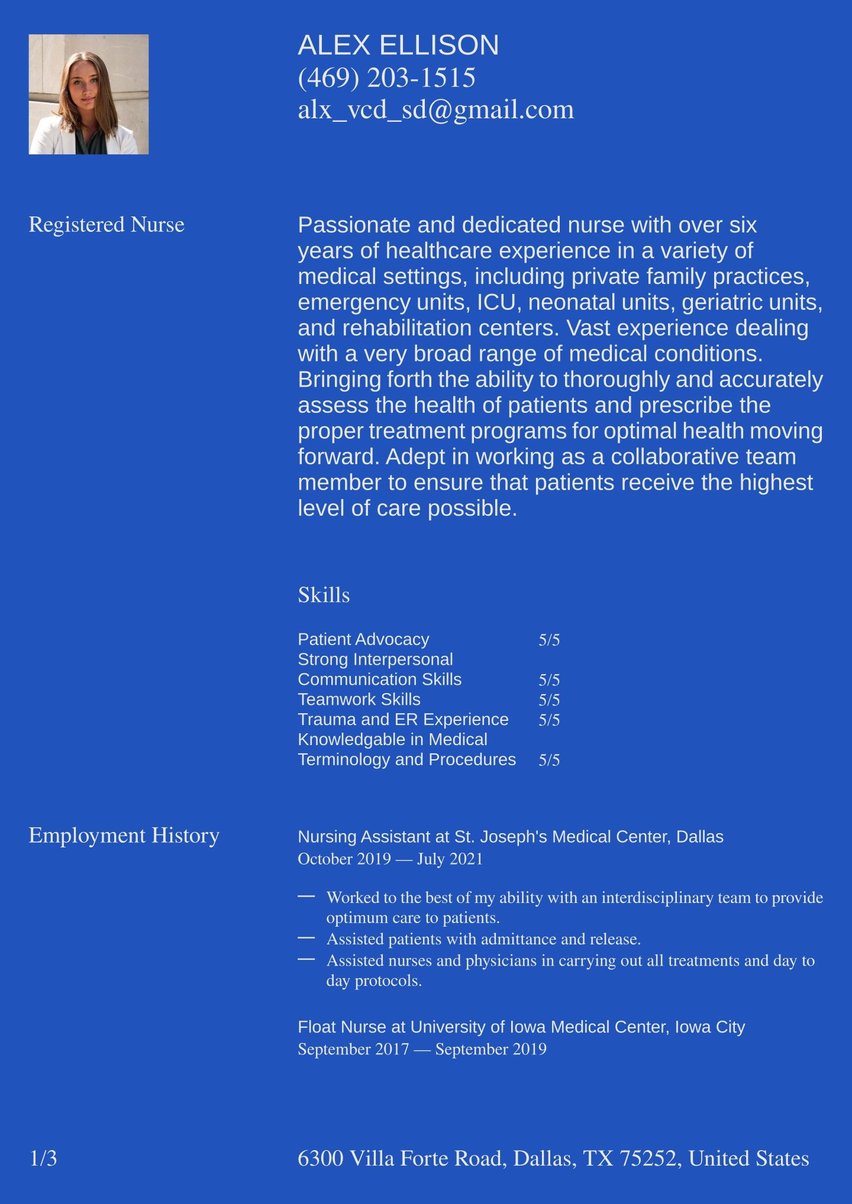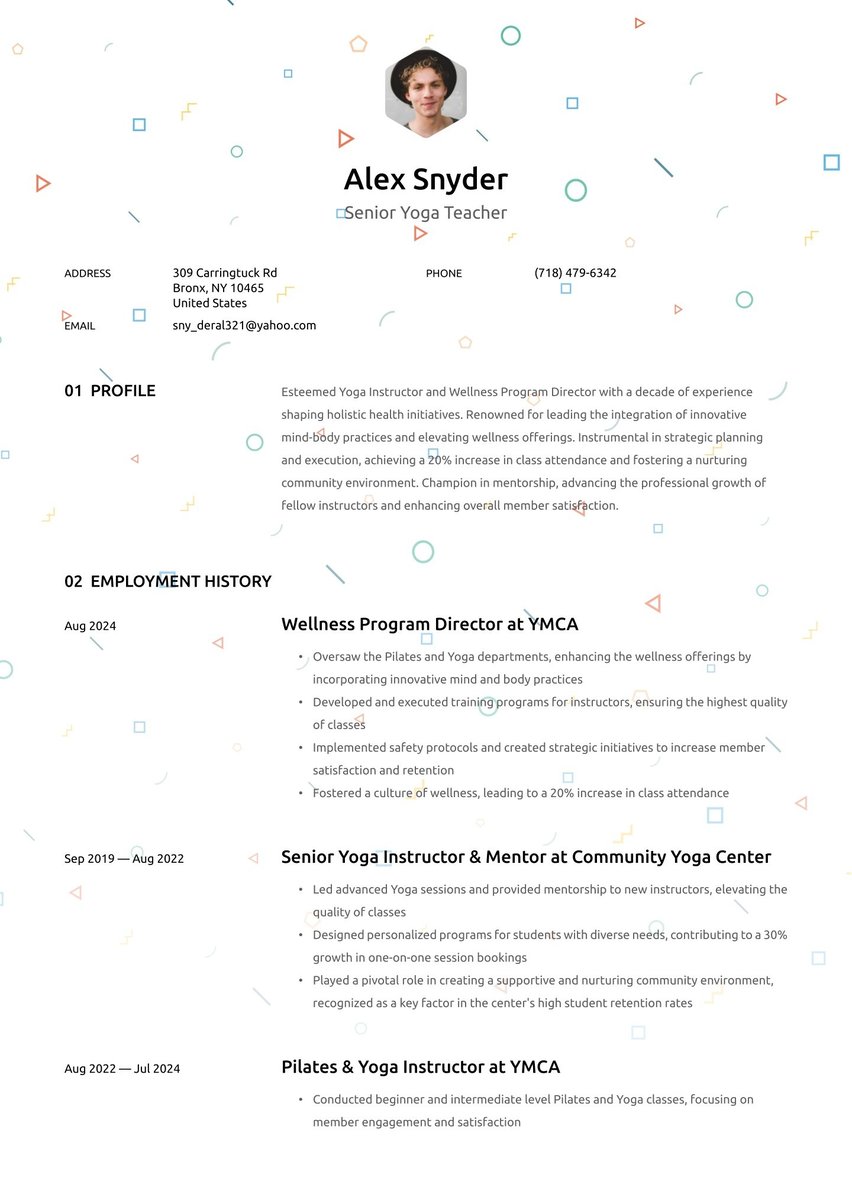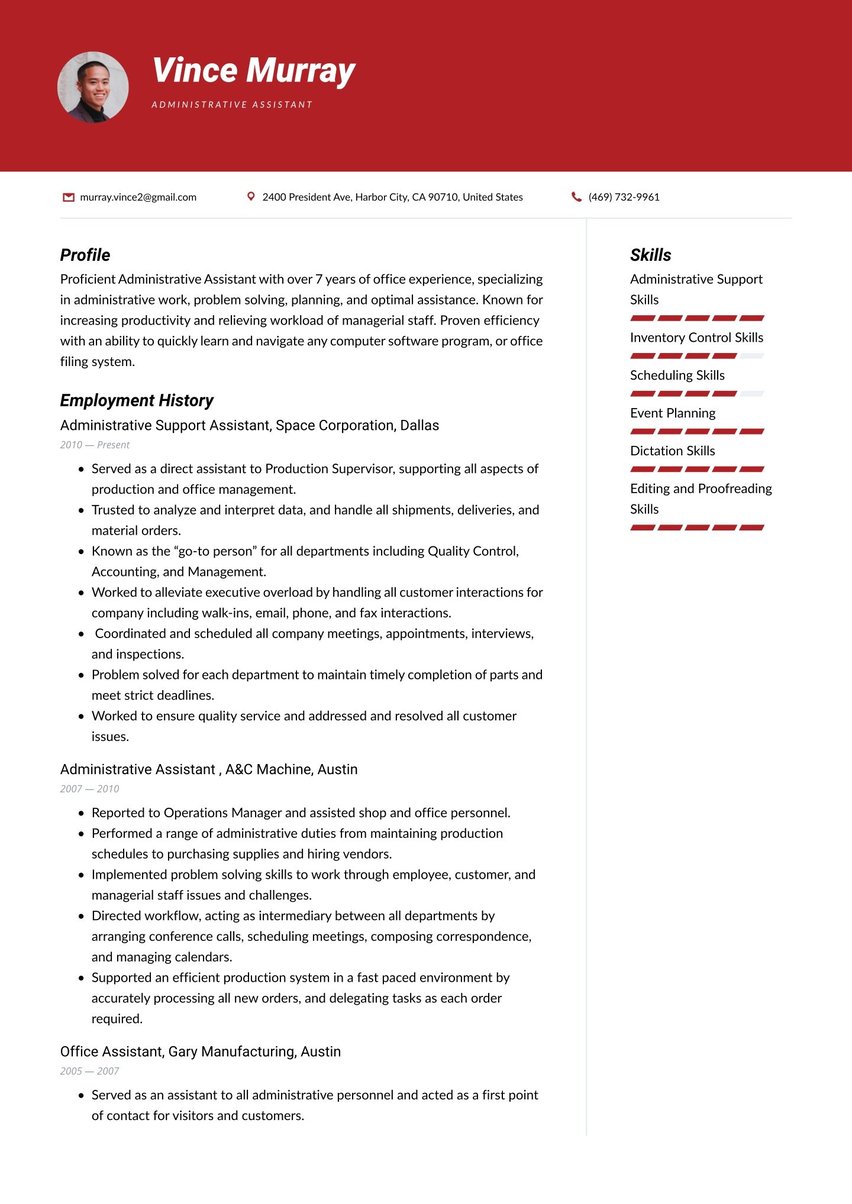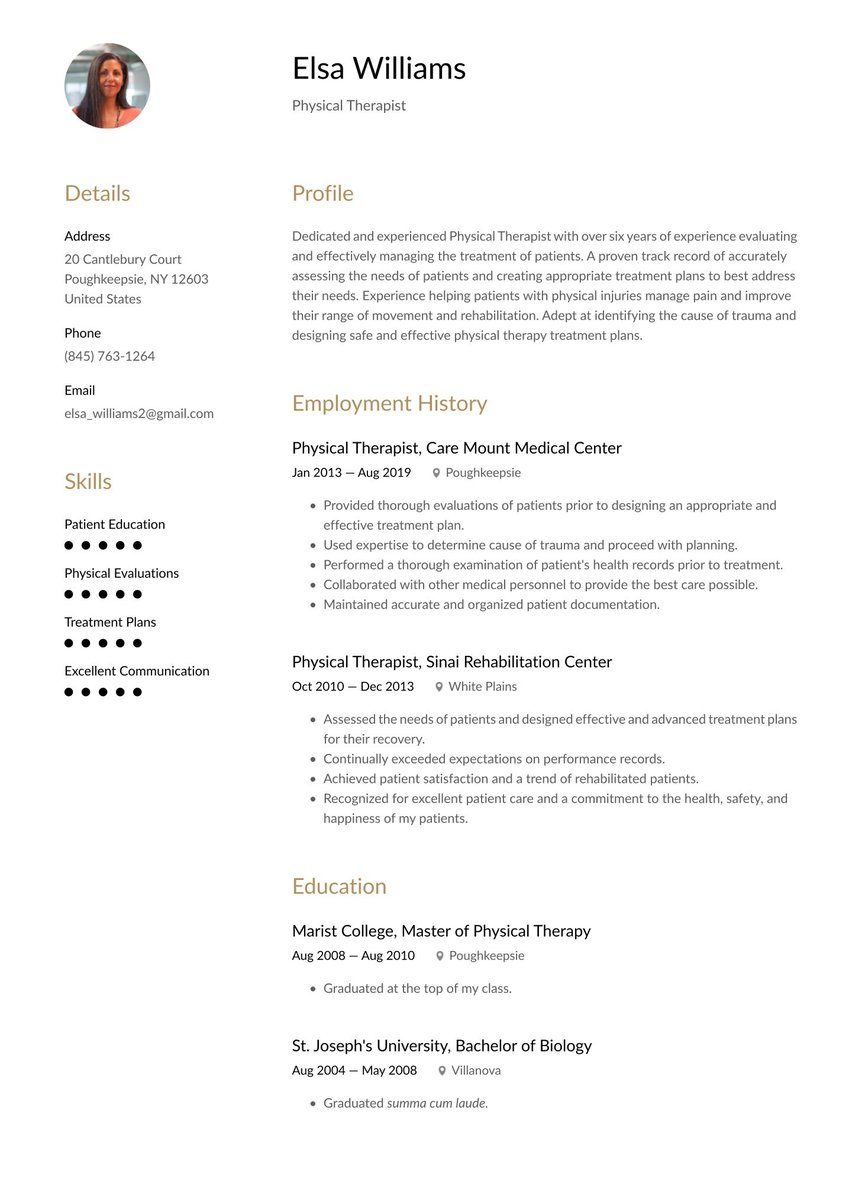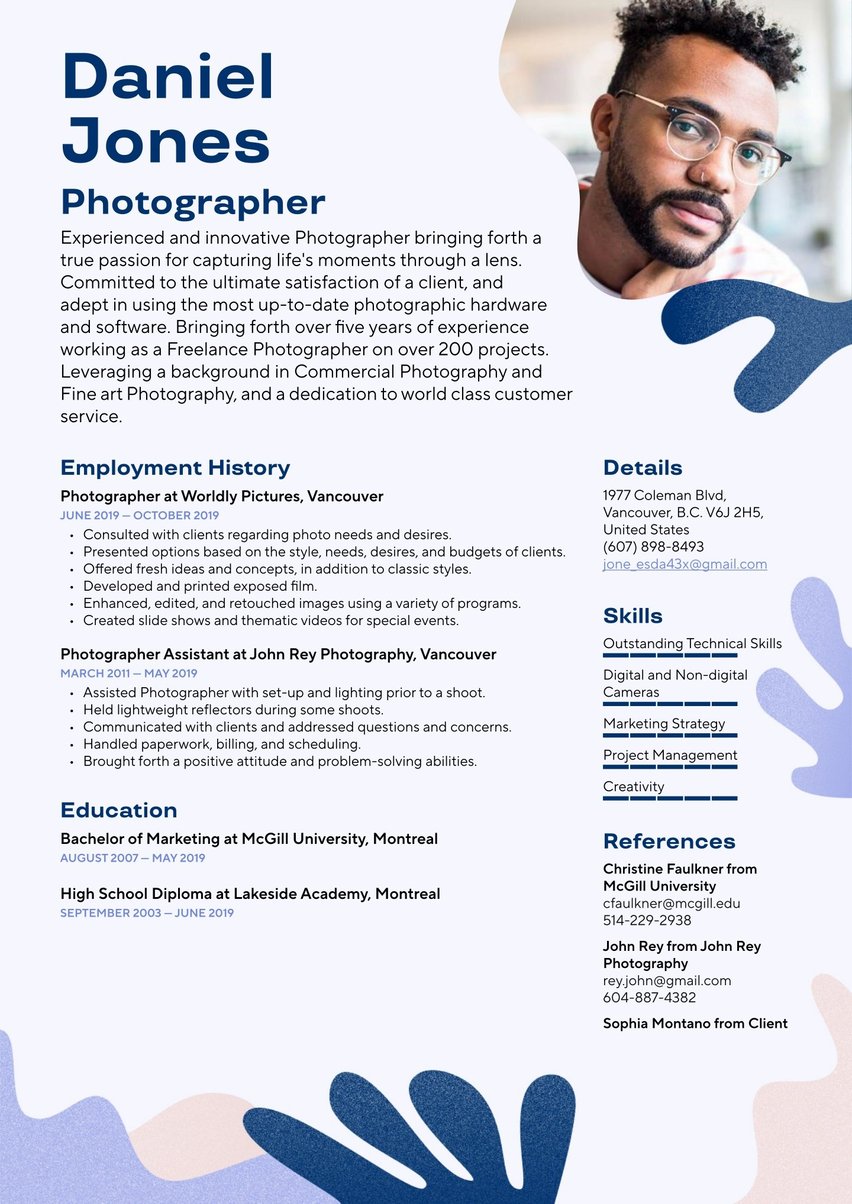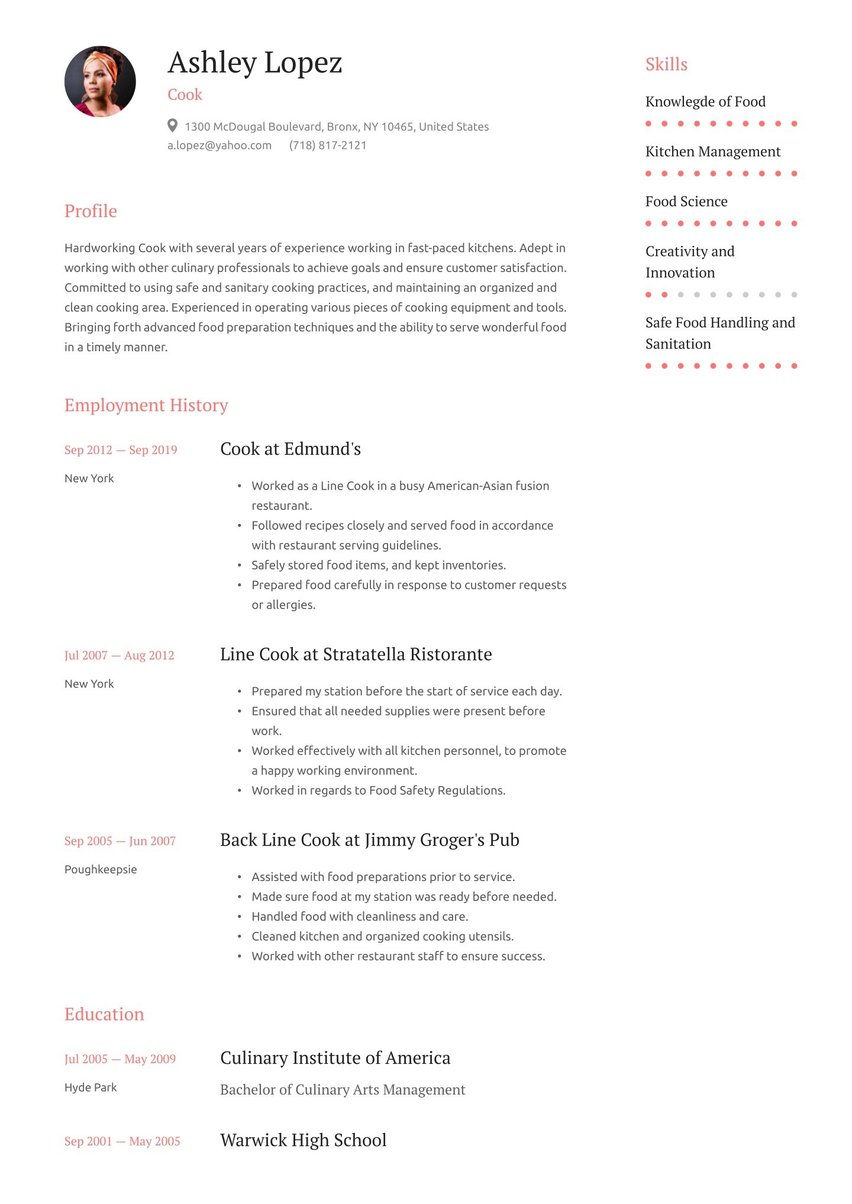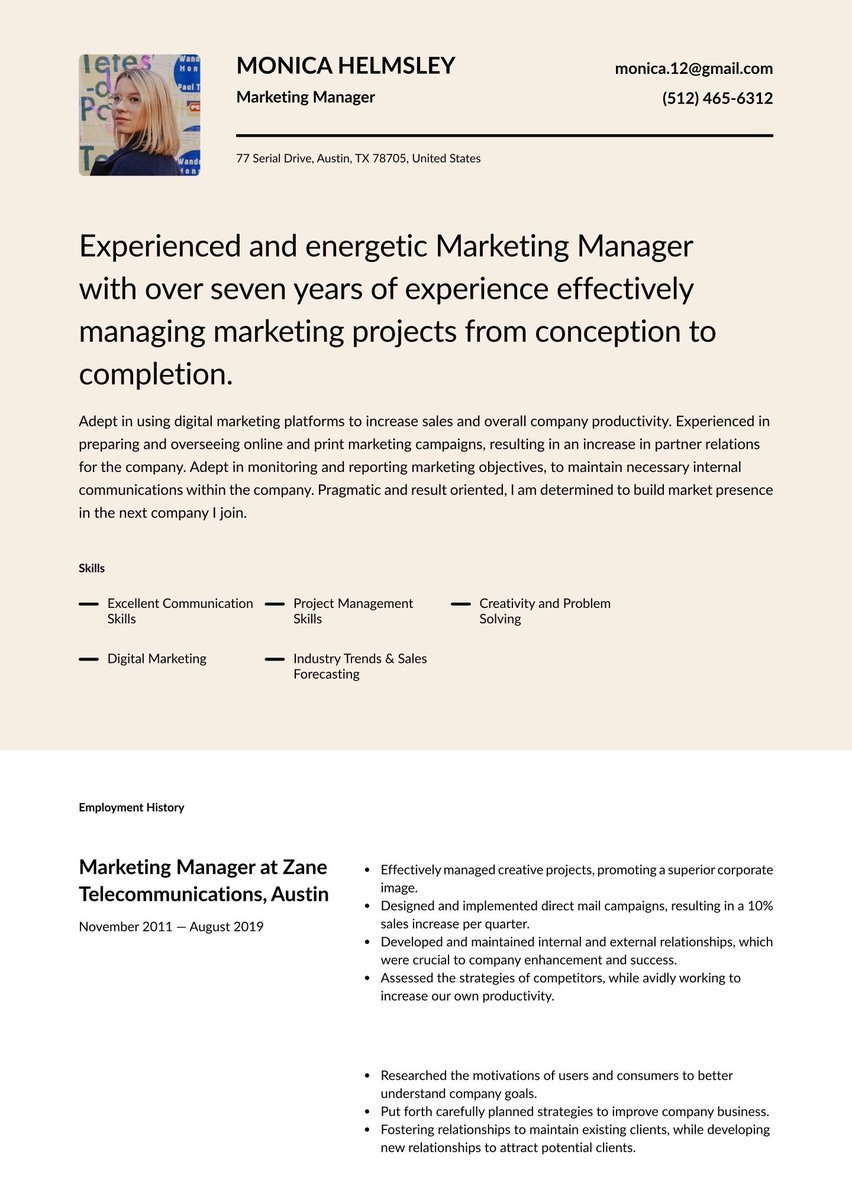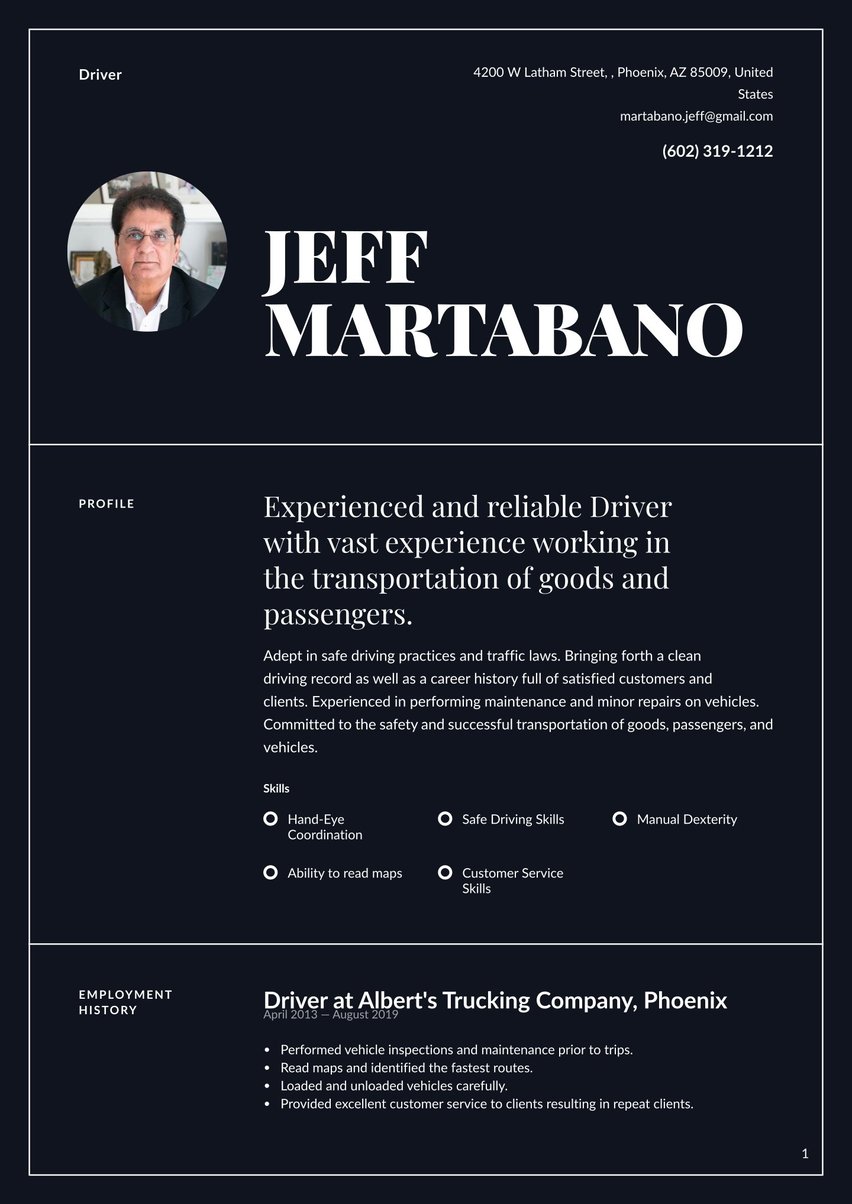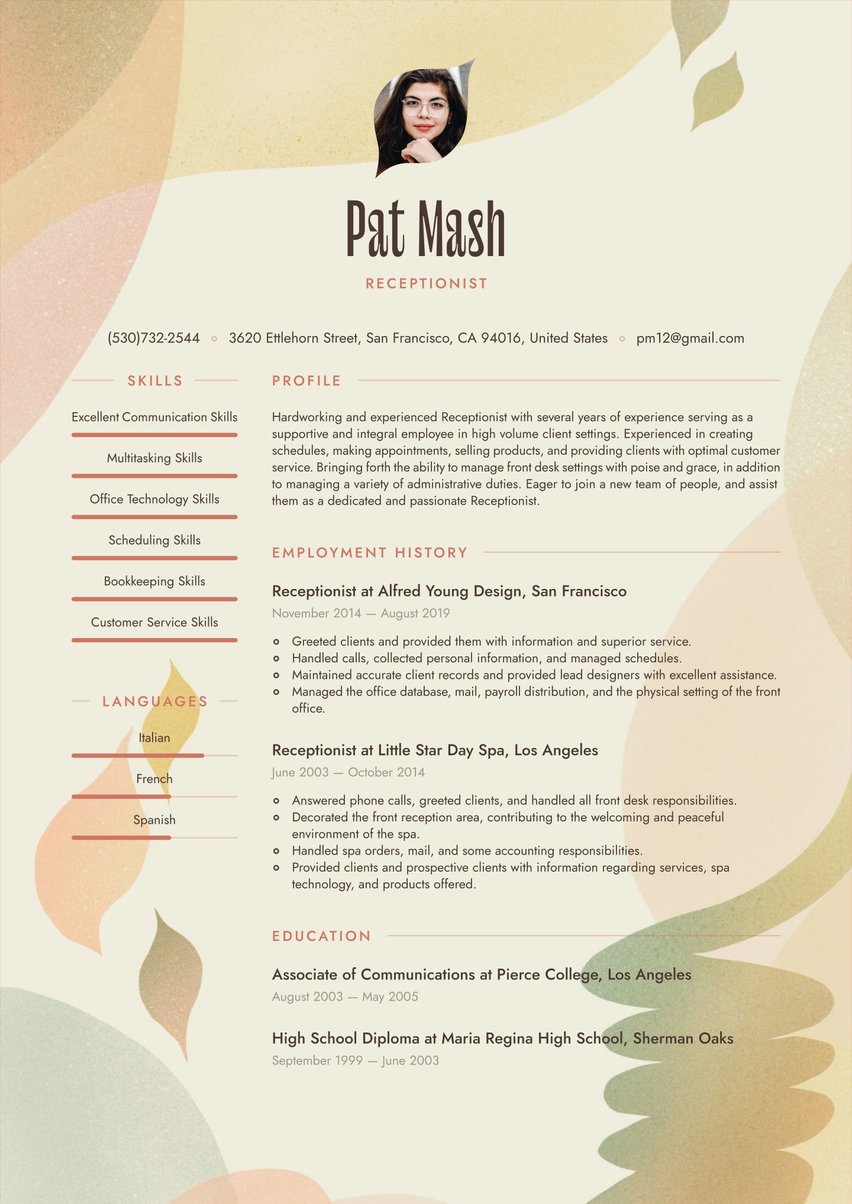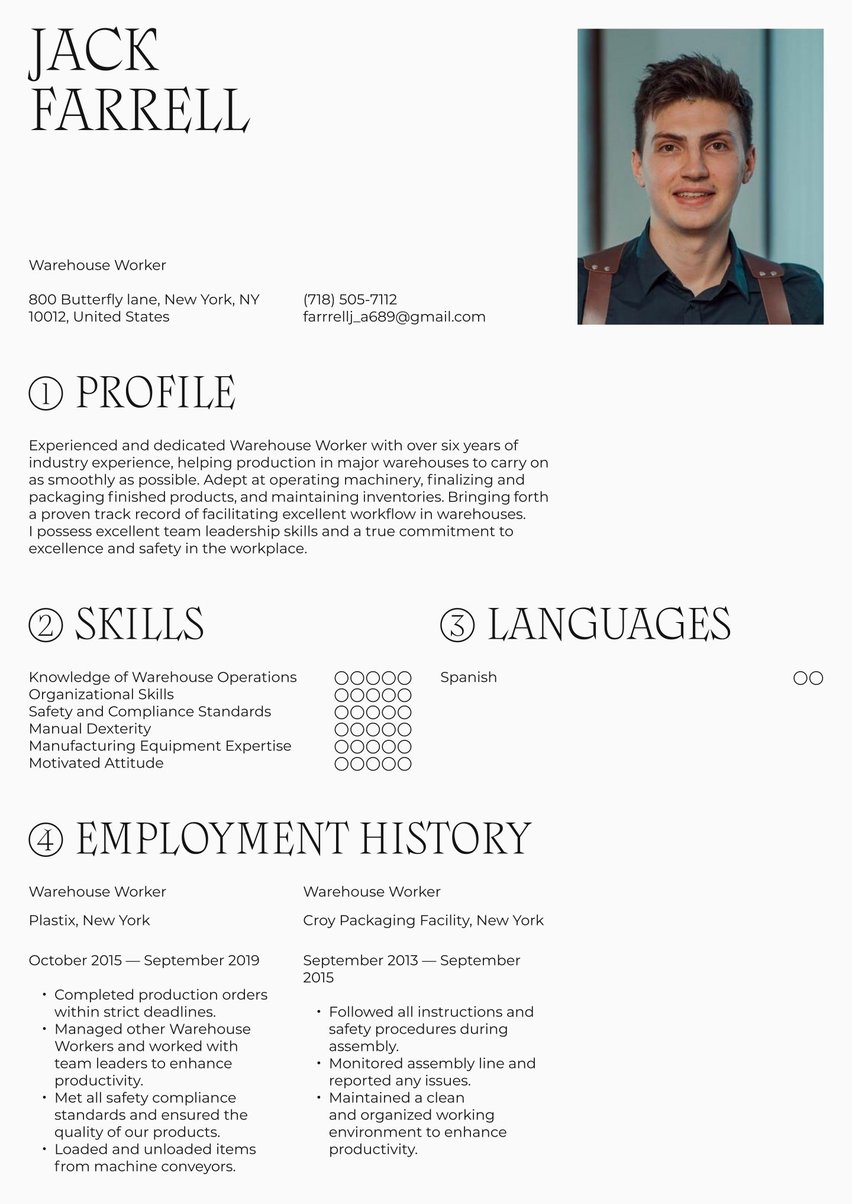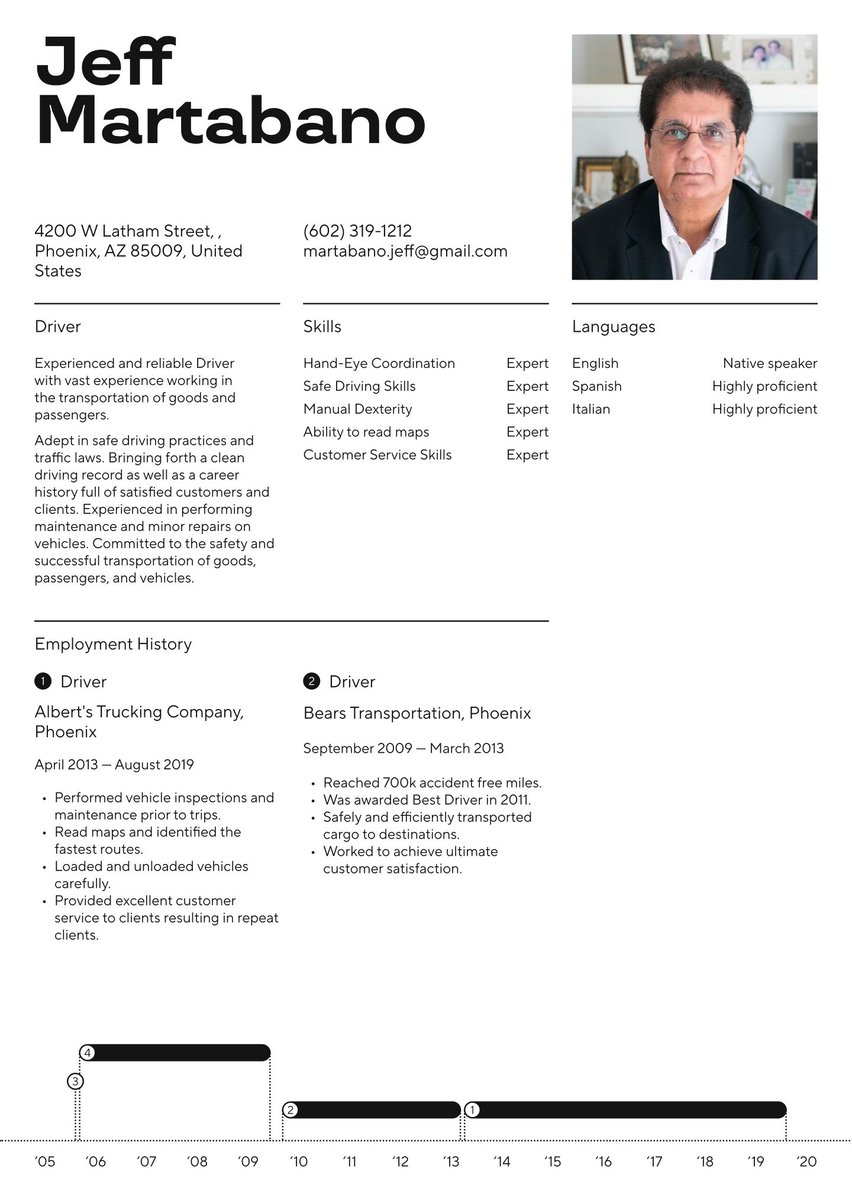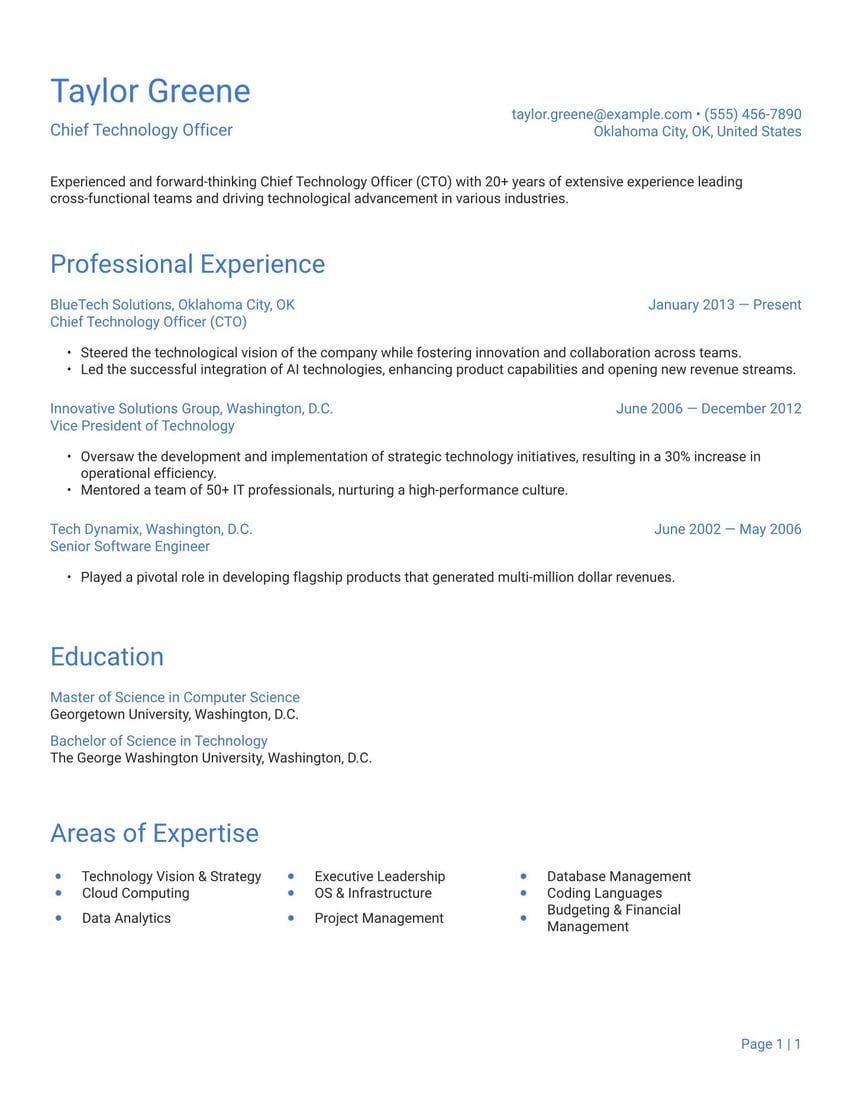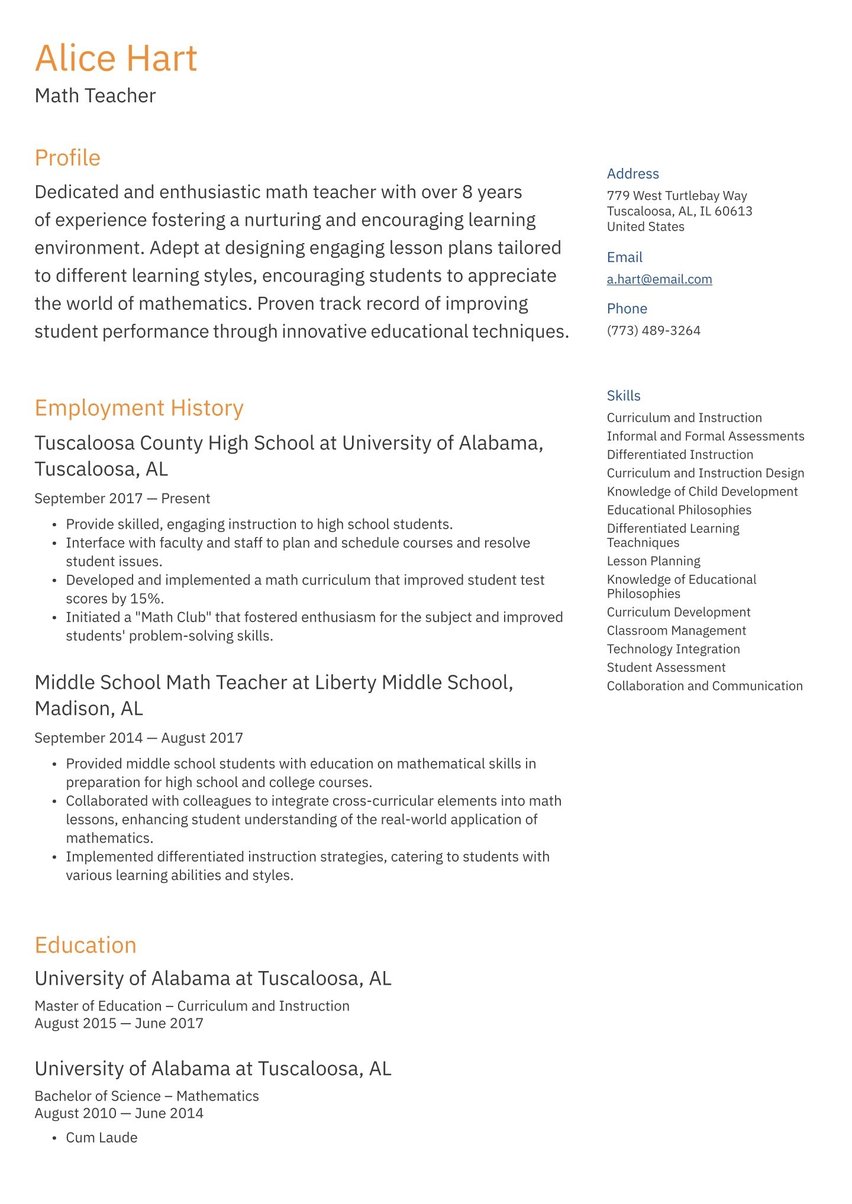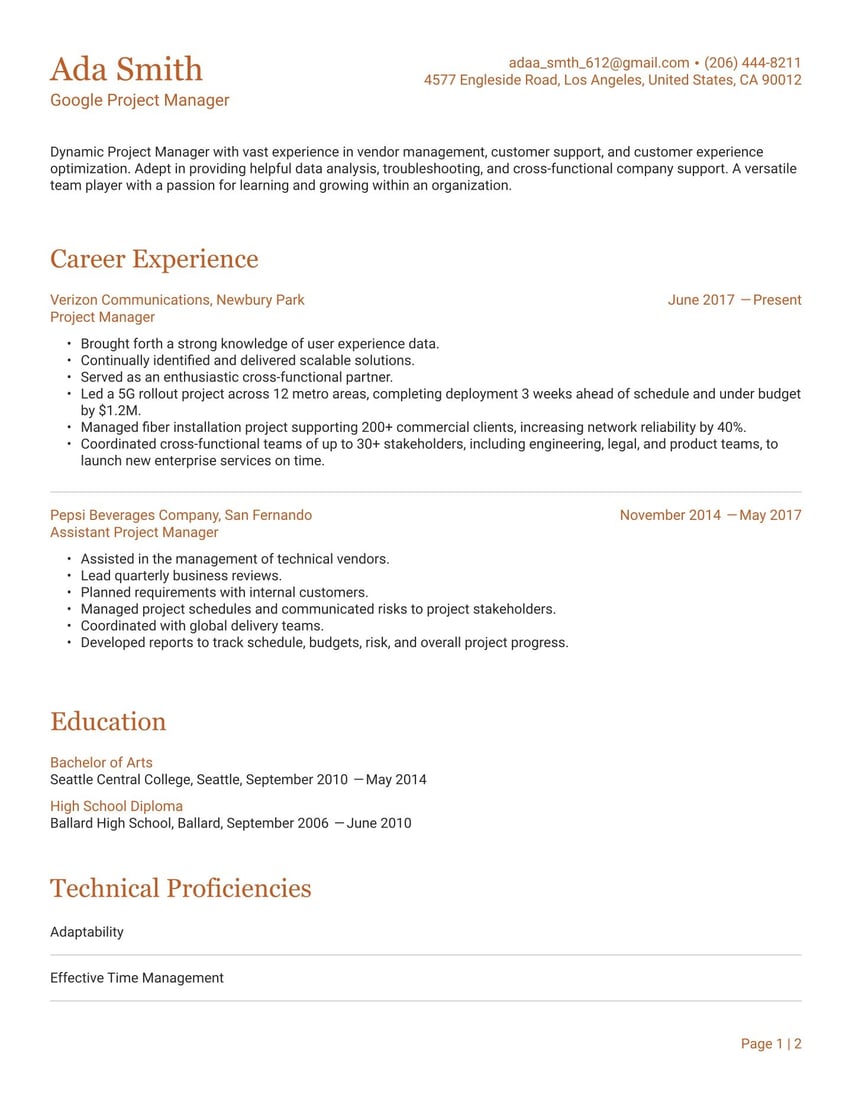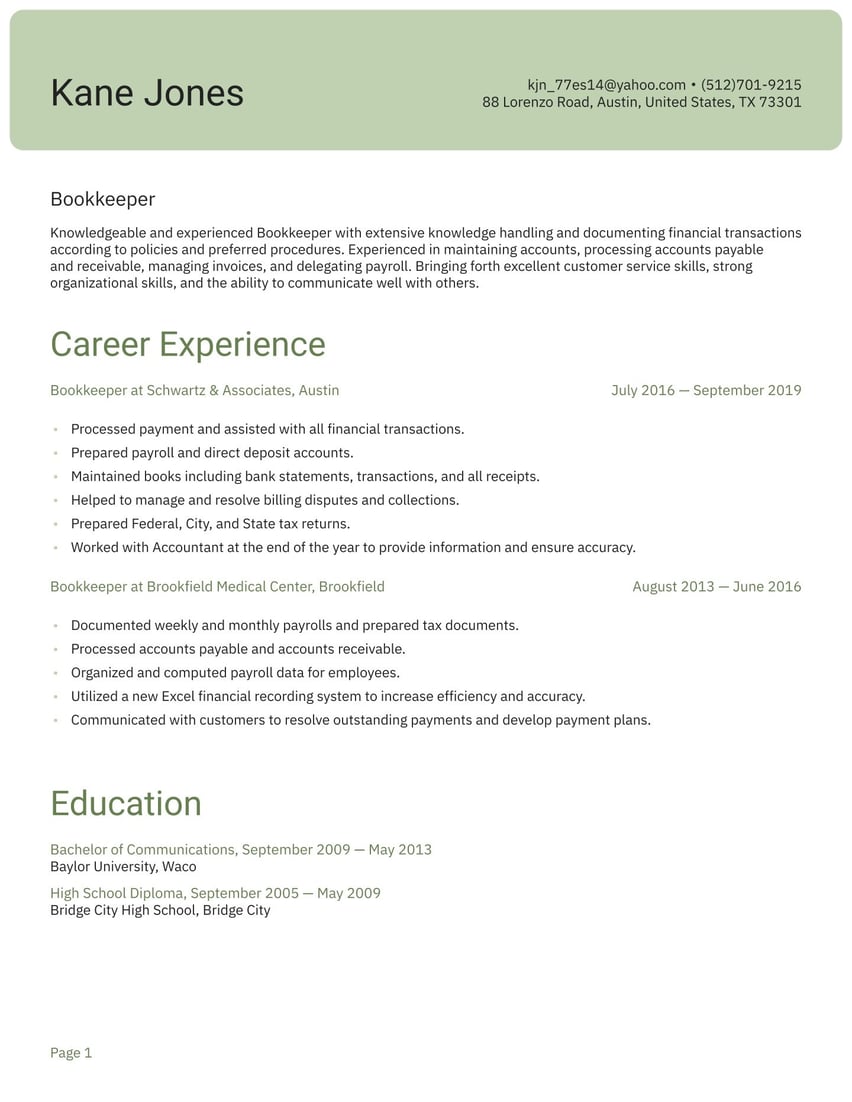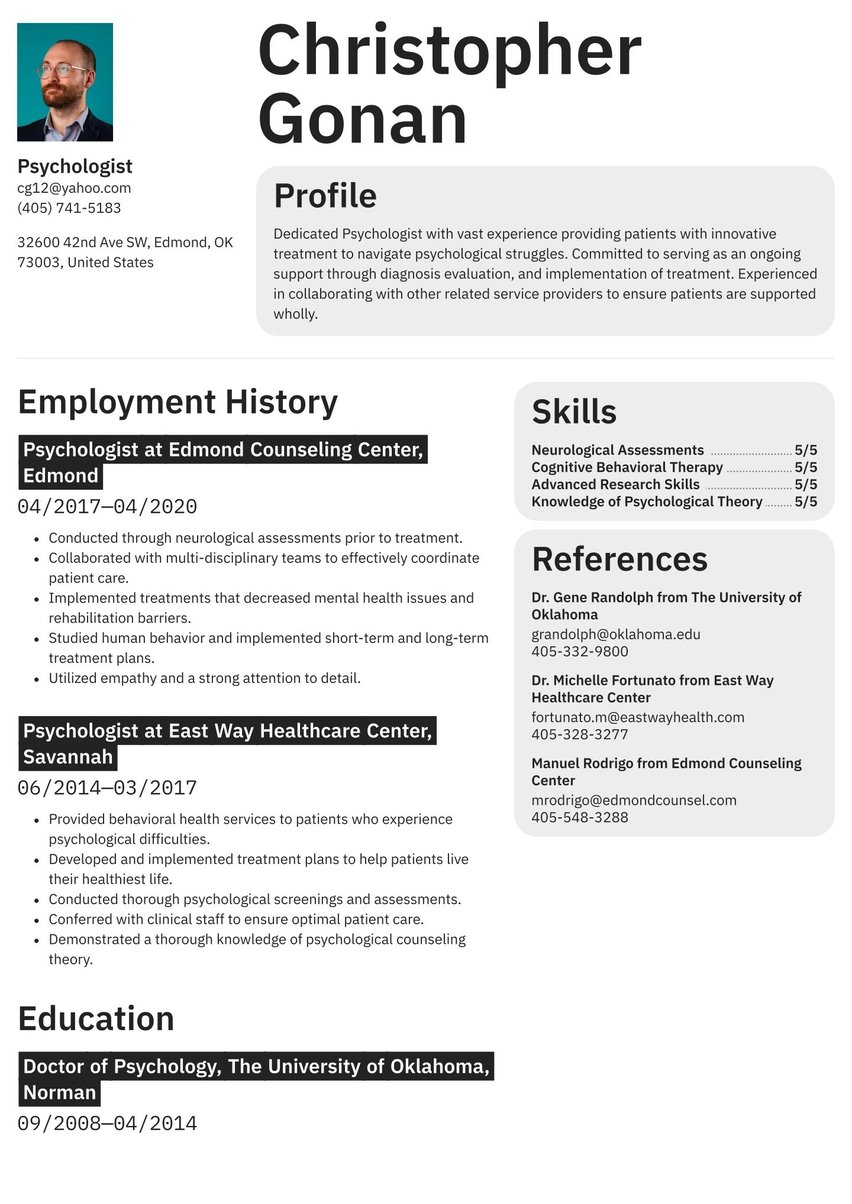Experienced Research Engineer with an extensive background in engineering principles, project leadership, and the effective application of research in technological companies. Bringing forth extensive experience in performing research on product development processes and offering solutions and alterations to improve safety and effectiveness. Adept in working with engineers and project managers at multiple levels to utilize research data effectively and achieve optimal results.
05/2016 - 01/2019, Research Engineer, AGR, New York
- Worked with Project Managers to discuss equipment function, processes, and productivity, while offering solutions to current issues.
- Researched technological improvements currently dominating the field, and tested their outcome for specific products.
- Wrote daily reports and organized data presentations for accountability and quality assurance.
- Tested the efficacy and safety of products and analyzed the results in relation to procedures.
06/2012 - 04/2016, Research Engineer, United Technologies Research Center, New York
- Led the research and development of technologies.
- Worked in collaboration with other researchers to promote world-class applications and services.
- Delivered production-level code to support applications.
- Implemented innovative software solutions.
09/2007 - 05/2012, Master of Science in Biochemical Engineering, NYU, New York
09/2003 - 05/2007, Bachelor of Biochemical Engineering, NYU, New York
- German
- English
- Dutch
- Knowledge of Engineering Principles
- Strategic and Tactical Planning
- Leadership Skills
- Complex Problem Solving
- Interpersonal Communication Skills
A cutting-edge research engineer resume offers prospective employers a solution to the company's problem: that’s you. That might sound like a lot of pressure, but we're here to make it easy. We are a one-stop resource for job hunting with writing guides and resume examples for 300+ professions and an easy-to-use resume builder.
Research Engineer resume examples by experience level
This resume guide, along with the corresponding resume example will offer answers to:
- What does a research engineer do?
- How best to write a research engineer resume (tips and tricks)
- What is the best format for a research engineer resume
- How to make the most of each section of your resume (summary, work history, education, skills)
- How to create a professional, eye-catching resume layout and design.
What does a research engineer do?
Research engineers, also called R&D engineers, can be found in any field where innovation is happening. They work in R&D (research and development) creating new products and technologies or improving upon existing ones using their analytical and engineering skills.
Research engineers may have backgrounds in mechanical, materials, electrical or other fields of engineering. They use an array of technical skills to design, carry out, and analyze experiments and contribute to product development. Your exact duties depend on the field in which you work.
In addition, they test designs and may manage the implementation of projects they have developed or helped develop. They create specification documentation and problem-solve when a product is not working correctly.
The job market and salary for research engineers
Your skills are in high demand if you work in computers or information. In fact, the number of jobs is expected to leap 22% from 2020-2030, according to the U.S. Bureau of Labor Statistics. That number varies depending on the industry in which you do research.
The same is true for salaries. Typical annual salary lies from $99,211 to $126,621, according to Salary.com, but Google Research Engineers average $185,429, Glassdoor reports.
How to write a research engineer resume
What components go into a research engineer resume? Your document should follow this structure:
- The resume header
- The resume summary (aka profile or personal statement)
- The employment history section
- The resume skills section
- The education section
Make keywords count
The title of research engineer is a broad one, so you have many options and that’s great! Because of that, you should be careful to individualize your research engineer resume every time you apply for a new position to ensure you are presenting yourself in the best light based on the job description.
This process signals to employers that you understand their requirements, but the careful use of keywords and phrases within the job listing will also help you rank high enough in the Applicant Tracking System (ATS) algorithm to get you past that hurdle.
If you’re looking for more ideas for completing your resume, our related engineering resume example category will help.
- Facilities Engineer resume sample
- Electrical Engineer resume sample
- Engineering resume sample
- Civil Engineer resume sample
- CNC machinist resume sample
- Agricultural Engineer resume sample
- Technician resume sample
- Health and Safety Engineer resume sample
- Process Engineer resume sample
- Project Engineer resume sample
- Structural engineer resume sample
- Mechanical Engineer resume sample
Choosing the best resume format for a research engineer
Technical skills may be highly sought after in your profession. If you choose to highlight them, you should consider the functional resume format, which expands the skills section and contracts the employment history section of your research engineer resume.
If that is not the case, stick with the most prevalent format, reverse chronological order. Recruiters are most interested in what you have done most recently and this format makes it easy for them to find it. It is also the format that the ATS will try to scan your resume into when you apply online; therefore, reverse chronological order will save you from having to input your application manually.
Resume summary example
The summary of your research engineer resume gives more than an overview of your skills. It is here that you will tout yourself a bit without getting carried away. In about 100 words, you must show off your professional successes and give employers a sense of your personality.
Research engineers, also called research and development engineers, use an array of technical skills to design, carry out, and analyze experiments and contribute to product development. Your exact duties depend on the field in which you work. For example, some research engineers work on manufacturing processes in a mechanical engineering capacity. Others may have a chemical engineering focus or specific knowledge of biomedical engineering. This means you must have a variety of profile paragraphs depending on the job functions.
This section gives more than an overview of your skills. It is here that you will tout yourself a bit without getting carried away. In about 100 words, you must show off your professional accomplishments and give employers a sense of your personality. As a Research Engineer, you have tremendous responsibility when it comes to safety and productivity, and quality control. In this section, use at least one example of a challenge you have encountered in these areas and how you solved it.
Experienced Research Engineer with an extensive background in engineering principles, project leadership, and the effective application of research in technological companies. Bringing forth extensive experience in performing research on product development processes and offering solutions and alterations to improve safety and effectiveness. Adept in working with engineers and project managers at multiple levels to utilize research data effectively and achieve optimal results.
Employment history sample
Your employment history is the place to craft the story of your career, so this research engineer resume section should showcase your growth. Highlight your skill at using specific tools designed for the industry in which you work, as well as computer software to collect the most accurate and valuable data.
Your research engineer resume should showcase your ability to use your tools and expertise to provide pertinent information to project managers regarding processes or products. Do not think of this section as a listing of responsibilities. Each bullet item in your work history should explain a problem you faced, the actions and tools you used to solve it, and your results–in as much detail as possible. Use data when relevant to back up your claims and the names of software such as AutoCAD instead of more generic terms.
Also highlight your ability to work in a team environment and communicate effectively with others. If you reported to a senior research engineer, describe your interactions, their frequency, and their goals. Be as specific as possible. If you have project management or software development skills, make sure you include those desirable abilities as well. See our adaptable resume sample below.
- Worked with Project Managers to discuss equipment function, processes, and productivity, while offering solutions to current issues.
- Researched technological improvements currently dominating the field, and tested their outcome for specific products.
- Wrote daily reports and organized data presentations for accountability and quality assurance.
- Tested the efficacy and safety of products and analyzed the results in relation to procedures.
- Utilized superior engineering knowledge to meet and exceed company goals.
CV skills example
The skills section of your research engineer CV is the place to pull out your rare skills because it is just that: a list of your most impressive talents. Skip entry-level abilities and focus on skills in the job listing and those others are less likely to have.
For instance, it is almost a given that you will know how to use the Microsoft Office programs Word and Excel. Instead, list languages such as Java, Python, matlab, and SQL or software directly related to your work such as SolidWorks or Mathcad. Those hard skills are important, but so are the soft skills you need to thrive in the workplace. Mix in your strongest communication, organizational, and time-management skills to show that you are a well-rounded candidate.
This section should contain no more than seven skills. Remember, your goal is to grab the attention of recruiters who are scanning dozens of resumes. Make their job easy! See our resume sample below.
- Knowledge of Engineering Principles
- Strategic and Tactical Planning
- Leadership
- Problem-solving
- Strong Interpersonal Communication
- Project Management
Research engineer resume education example
A bachelor of science degree in engineering is the minimum requirement for a research engineer. Many engineers have master’s degrees and some even go on to earn a PhD., or doctorate. Te education section of your research engineer resume is a listing of those degrees.
If you hold any certifications you earned through continuing education, you should also list them here. Any honors or distinctions should be noted here as well. Because you have a bachelor’s degree, there is no need to include your high school diploma. Check out our adaptable resume example below.
- 2004-2008 NYU, Master of Science in BioChemical Engineering NY, NY
- 2008-2011 NYU, Bachelor in Biochemical Engineering NY, NY
Resume layout and design
Once you have assembled the text for your engineering resume, it is time to consider how you want it to look. First, here are a few rules of thumb:
- Leave adequate white space to keep your resume legible. To accomplish this, vary your line lengths and avoid trying to say too much.
- Do not use headers or footers for unique information. Not all Applicant Tracking Systems will be able to scan them accurately.
- Employ color sparingly and choose muted tones.
- Always have a friend or colleague proofread your resume, and then save your document as a PDF file to avoid formatting errors between programs.
- Make your section headings stand out, but avoid getting cute with the titles.
- An expertly-designed resume template can make it easy to create a great layout.
Key takeaways for a research engineer resume
- The need for research engineers spans many industries, so make sure you tailor your resume for each (and to beat the ATS).
- Computer and information engineering, you will have your pick of jobs.
- Use the reverse chronological resume format unless you want to sell employers on your technical expertise.
- Save time and effort by taking advantage of the online resume builder tool to get your job hunt started faster.


.jpg)

.jpg)
